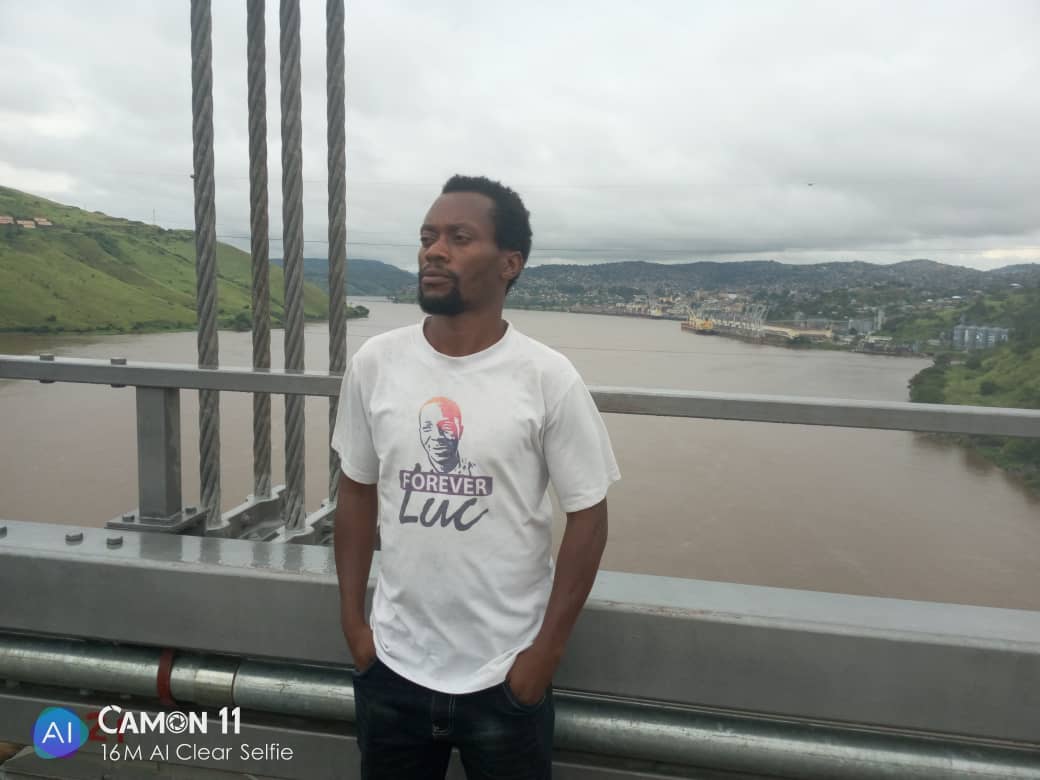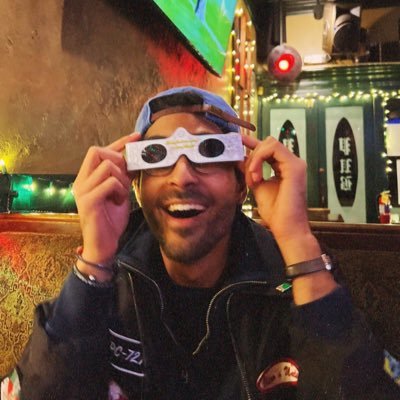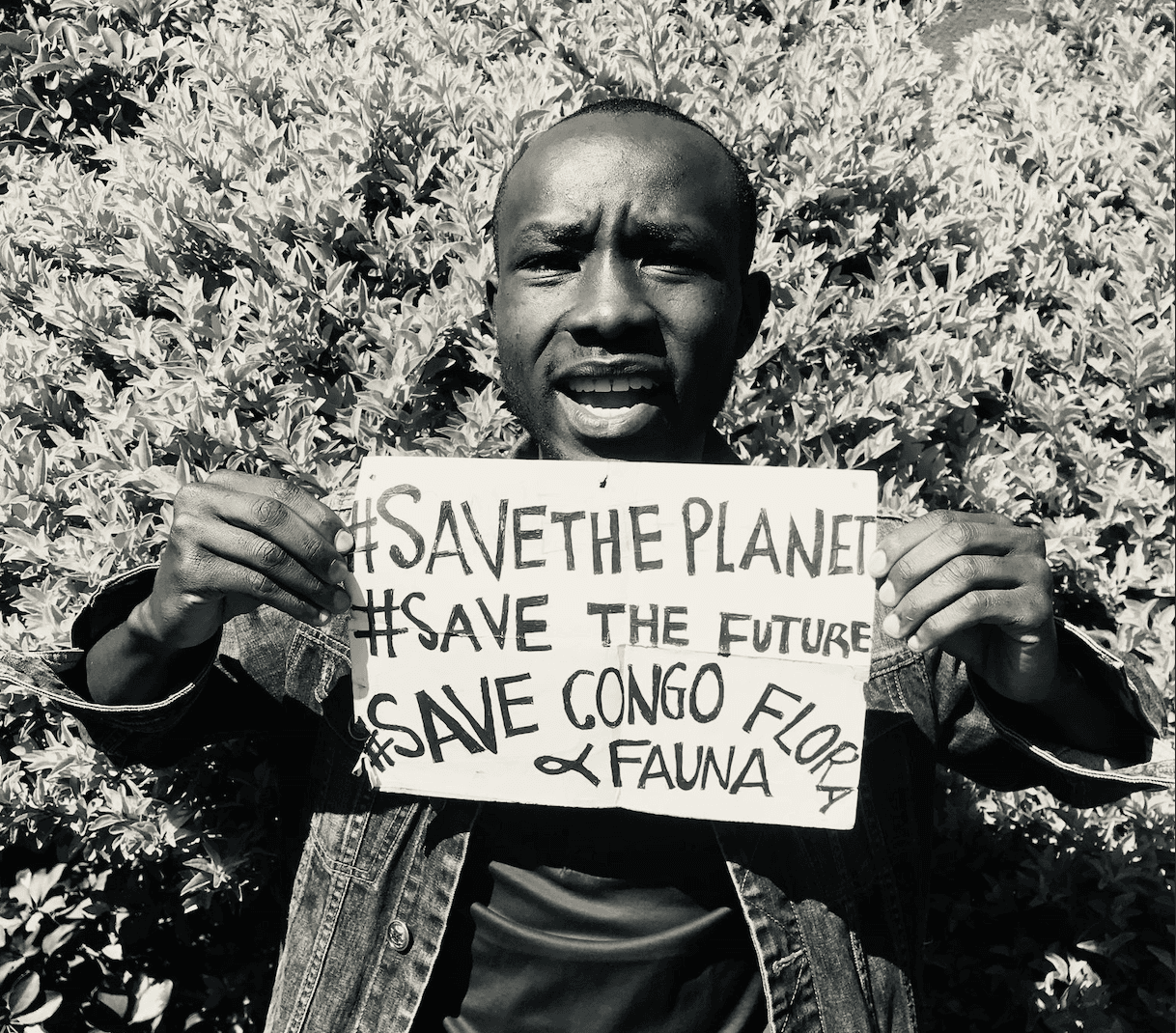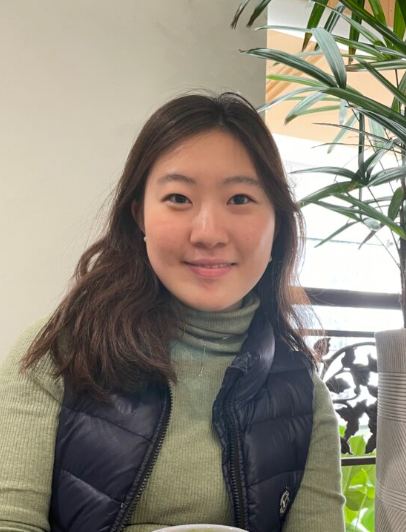The Democratic Republic of the Congo (DRC) is known for its rich history and vast biodiversity. It is one of the world's ten mega-biodiverse countries, with high rates of endemism and significant freshwater, forest, and soil resources. The DRC boasts approximately 50% of Africa's freshwater resources and numerous aquatic fauna species. However, despite these natural treasures, the DRC faces severe demographic and economic pressures, which have led to unsustainable resource use and significant environmental impacts, including deforestation, habitat destruction, poaching, and water pollution [i] . The country's historical struggle with colonialism, dictatorship, and civil war has left its mark on both its social fabric and the environment. The DRC was the first African country to establish a mark on nature conservation with the creation of Virunga National Park in 1925. Yet, there are numerous challenges in enforcing and implementing effective conservation strategies due to factors like corruption, lack of scientific knowledge, and armed conflicts that finance military activities through the exploitation of natural resources like diamonds, gold, and coltan
DRC
Regenerate
In the wake of these challenges, international cooperation has become crucial. For instance, the DRC signed the Brazzaville Declaration in 2018 to protect the Cuvette Centrale region in the Congo Basin, which contains the world's largest tropical peatlands, from unregulated land use. Additionally, the DRC is an active participant in global environmental and climate mitigation efforts, committing to protect at least 30% of its national spaces by 2030 as per the "30x30 target" initiative by the IUCN. [i]
The pressures of mining and deforestation, often exacerbated by the poverty and conflict in the region, continue to threaten the DRC's unparalleled wildlife haven. A report by the UN Security Council Group of Experts in 2022 highlighted these concerns, with a particular focus on the impact of semi-industrial mining within protected reserves like the Okapi Wildlife Reserve. [i]
We approach climate advocacy with solutions-oriented optimism. Our small team is composed of on-the-ground climate activists and remote volunteers based in the U.S. and South Asia working towards bridging the gap between institutional climate work, the Refi movement, and grassroots activists. Our network begins with members of DEC (A local organization in DRC), Refi DRC, Redemption DAO, and Yale School of the Environment — by bringing these disparate pieces together, we are experimenting with how ordinary strangers with a common goal meet and respond to our stakes in the climate crisis and environmental justice.
The Democratic Republic of Congo is home to the beautiful Congo Basin, our planet’s second-largest tropical forest where preliminary data measures that it’s the largest carbon sink in the world. It cradles some of the oldest, densest trees and plants that store 32 billion tons of carbon, 10,000 tropical plant species, and nearly 150 distinct ethnic groups who are all intimately linked to the wellbeing of this quiet climate regulator.
In 2022, the DRC government announced that it was auctioning off 27 million hectares of the basin to fossil fuel companies, driven by economic interests. These blocks include mining rights in the world’s largest peatlands that store around 30 billion tons of carbon — 7.5 billion tons shy of global emissions in 2022 — which get released into the atmosphere when disturbed.
International and Congolese environmental
organizations, indigenous peoples of the rainforest, and local villagers have all rallied against the auction.
Although President Tshisekedi’s government passed a new law to address discrimination and abuses against indigenous forest people, no efforts have been made to gain the Indigenous communities’ consent for the oil auction or to address their displacement.
On Lake Kivu, two companies have already won the market and are ready for exploitation of gas blocks.
Studies have established that Lake Kivu, whose methane gas reserves are estimated at 60 billion cubic meters, could generate 700 MW over a period of 50 years.
Out of 32 blocks initially selected, calls for tenders for the allocation of rights will be launched on July 28 for 27 for 3 gas blocks by Israeli businessman Dan Gertler. The three gas blocks are located in Lake Kivu.
Note that maintaining the biodiversity of Congolese forests, their genetic potential and their contribution to the environmental balance of the planet also constitute global issues which go beyond the strictly Congolese framework and underline the relevance of regional and international mobilization. Forests precede man, but deserts follow them as René De Chateaubriand says.
This reality is experienced day and night in the island territory of Idjwi in South Kivu in the DRC. The Nyamusisi forest remains in history because its destruction began in 1994 under pressure from Rwandan refugees. This forest was a biodiversity reserve with an area of 44km2 while the entire island has an area of 310km2, almost 14% of the area of Idjwi Island. The forest species have all disappeared, only some 26 primates have recently been discovered in the rocks and the process of restoring their habitat is underway. In 2004, land conflicts between the local population and local authorities caused the disappearance of the Nyamusisi forest.
We are in urgent need to build trust networks with actors on-the-ground to reimagine the possibilities of collective grassroots climate justice organization. Researchers on ethical engagement with indigenous communities forward “community-based research” which emphasizes on forming “collaborative relationships with the community and encouraging the participation of community members in the process of creating knowledge.”
Following this approach, we partnered with Emmanuel Ndimwiza, who is based in South Kivu and serves as the founder and organizer of the Droits Environnement et Citoyenneté (Environmental Rights and Citizenship) to co-imagine what 3-6 months of radical organizing in 2024 would look like.
Emmanuel states Chief Seattle said in 1854: when the last tree has been cut down, the last river poisoned, the last fish sinned, then we will understand that money cannot be eaten. The forests of the DRC are a common heritage of inestimable value to the population of humanity. They must be managed with the aim of reducing poverty and protecting the environment. This constitutes a great responsibility both for the Congolese government and the international communities.
A more solid plan is being devised and will roll out in the coming weeks once we collectively agree on milestones!
Weaving efforts of members of DEC, Refi DRC, Redemption DAO, and Yale School of the Environment we dream of a world that’s connected, cooperative, and committed to the well-being of all lifeforms. Our impact so far? Providing resources on the ground to Emmanuel and his team, mapping the extent of the problem, and beggining to amplify the voices of local activists deeply connected to lands part of the Congo basin especially in Goma and Lake Kivu near the Island territory of Idjwi.
Impact to be made:
Help source and plant 12,000 seedlings of Acacia and Grevillea trees
Assist in funding for a row boat to clean plastic out of lake Kivu and collect water samples
Provide necessary media resources as well as fund at least 4 local conferences/awareness campaigns in the DRC
Questions to answer:
What are the causes of the absence of forests in the island territory of Idjwi?
Are there governmental or non-governmental structures responsible for the protection and conservation of biodiversity and the popularization of the forest code in the island territory of Idjwi?
Are reforestation efforts being made in this region?

Emmanuel Ndimwiza - Author, theorist, sociologist, political analyst and human rights activist. Teacher and ideological trainer of young people. His big call is for young people to come together to unite to address global climate change with protected areas and nature-based solutions which I believe are urgently needed if governments are to reduce the rates of biodiversity loss and climate change.

Shaan Patel - A environmental data scientist by trade currently Co-steward of Dream DAO and building Sacred Sanctuaries with Atlantis DAO in India. He has discovered that the most important datapoint is how many times him and his team touch grass!


Jae-Hee Bae - She is deeply interested in biochemistry, environmental justice and public service, the fight against social inequalities, social injustices.

Gloria Kimbwala - Gloria Kimbwala has dedicated the last 15 years of her career to creating an inclusive culture in technology around the globe. Currently she brings underrepresented talents into web3 by leading ReFi DRC and building Supermodular.
Explore the Basin
Soak in the beauty of Congo’s wild heart through the rich history and importance of the Congo
Learn From Experts
Explore DECs blog of educational resources for a look in the challenges we are facing
Create Your Impact
Play your part! Discover how far your contributions can go.
Join the Movement
Help us grow the tribe. Share your story and spread the word!
Be Social Savvy
Broadcast your impact to inspire others. Sharing is caring!
Get Involved
Donations, volunteering, or simply spreading the word. There's a place for everyone.
Take Action Together
Can you hear the call of the wild? It’s time for action. Let’s co-create the path towards a greener future – right here, right now! Go on, start your journey on the contributing to Regenerating DRC
Join Us
Learn More
©2024 RegenerateDRC All rights reserved.








